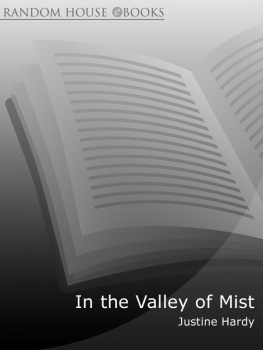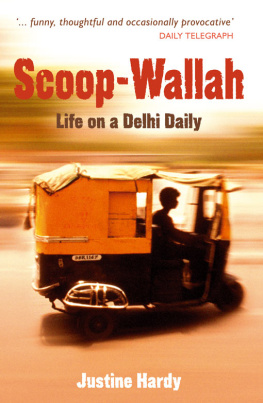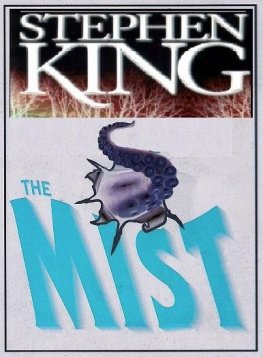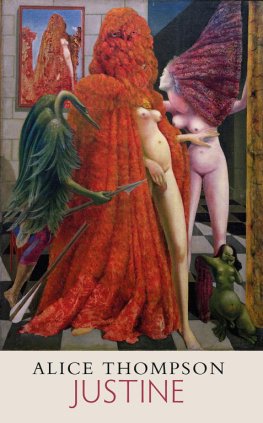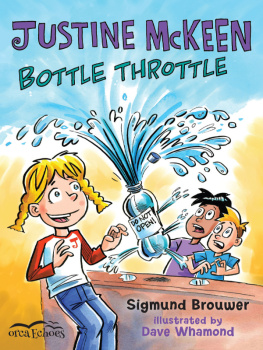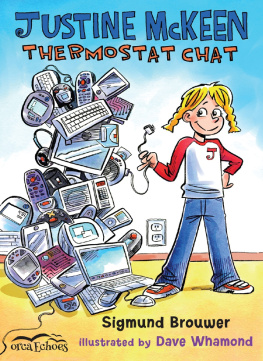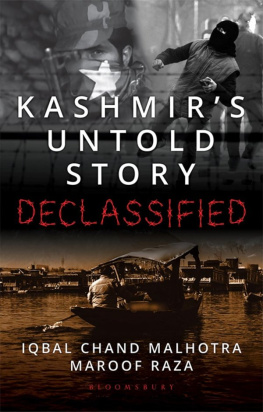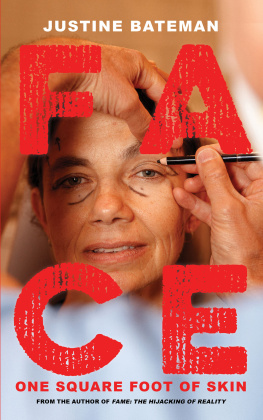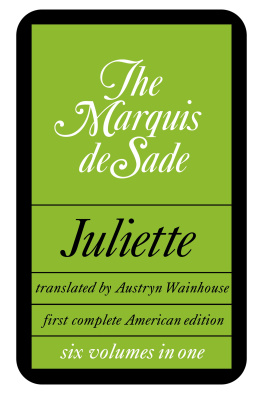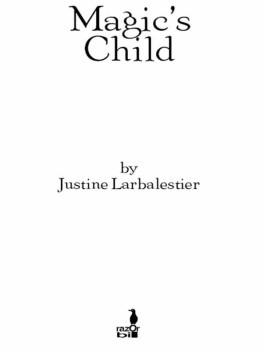IN THE
VALLEY
OF MIST
ONE FAMILYS EXTRAORDINARY STORY:
FROM PEACE TO WAR IN KASHMIR

Justine Hardy

This eBook is copyright material and must not be copied, reproduced, transferred, distributed, leased, licensed or publicly performed or used in any way except as specifically permitted in writing by the publishers, as allowed under the terms and conditions under which it was purchased or as strictly permitted by applicable copyright law. Any unauthorised distribution or use of this text may be a direct infringement of the authors and publishers rights and those responsible may be liable in law accordingly.
Version 1.0
Epub ISBN 9781446407899
www.randomhouse.co.uk
1 3 5 7 9 10 8 6 4 2
First published in 2009 by Rider, an imprint of Ebury Publishing
This edition published by Rider in 2010
Ebury Publishing is a Random House Group company
Copyright Justine Hardy 2009
Justine Hardy has asserted her right to be identified as the author of this work in accordance with the Copyright, Designs and Patents Act 1988
All rights reserved. No part of this publication may be reproduced, stored in a retrieval system, or transmitted in any form or by any means, electronic, mechanical, photocopying, recording or otherwise, without the prior permission of the copyright owner
The Random House Group Limited Reg. No. 954009
Addresses for companies within the Random House Group can be found at www.rbooks.co.uk
A CIP catalogue record for this book is available from the British Library
Map artwork by Rodney Paull
ISBN 9781846041518
Copies are available at special rates for bulk orders. Contact the sales development team on 020 7840 8487 or visit www.booksforpromotions.co.uk for more information
To buy books by your favourite authors and register for offers visit www.rbooks.co.uk
CONTENTS
For the people of Kashmir
Justine Hardy is a journalist, writer and documentary maker of international standing. Born in Britain, she trained in Australia and has worked on newspapers and magazines both in the UK and in India. Today she lives in Kashmir, Delhi and London, and is the author of six books, of which In the Valley of Mist , Scoop-Wallah and Goat: a story of Kashmir and Notting Hill were serialised on BBC Radio 4.
ACKNOWLEDGEMENTS
I T IS JUST NOT possible to thank people in a full enough way when a book is a story of peoples lives, as this is. All I can do is acknowledge those whose story this is: Manzoor and all your family, you are mashkur , dil se , and to Maqbool, Salaama and Farouk on the boats and the lakes. Ramesh Halgali, for all that has been done and can be done. Dr Arshad Hussain and Parveena Ahanger, for all that you are doing for your people. To all the teachers of students at BEI school, for the future that you represent. Lovely Oberoi for your advice across the years. And beyond your Valley, Sudha Koul and Rafiq Kathwari. In Delhi Madhu, Krishna, RP Jain and C M Pie for being home. To Victoria Schofield and Alex Evans in friendship and conversation over time. In London and New York, my thanks to Elizabeth Sheinkman, my agent, to Judith Kendra at Rider and Amber Qureshi at Free Press for seeing into the heart of this story, and to Sue Lascelles, Kirsa Rein, Morag Lyall and Celia Knight, for elegant editing and assistance. Thank you Nitin Upadhye for the film of the story. And to Tamara, for your translations. To Johnny for listening and advising. And to Richard for unquestioning support through all of this. All of you have built this story. And my great thanks as well to all those who have given to the Kashmir Welfare Trust since 2005. For more information please see www.justinehardy.com
NOTE ON THE TEXT
A S THE SITUATION in Kashmir continues to be fragile I have changed the names of some of the characters in this story, for the purpose of anonymity and protection.
Throughout the book I refer to the separated parts of Kashmir as Pakistan-controlled Kashmir and Indian-controlled Kashmir. In politicised parlance India refers to Pakistan Occupied Kashmir, or POK, likewise Pakistan uses the expression Indian Occupied Kashmir, or IOK. Pakistan also refers to the Pakistani controlled part of Kashmir as Azad Kashmir , or Free Kashmir. I have only used these terms in dialogue and reported speech.
Throughout the text there is transliteration from Kashmiri, Urdu, Arabic and Hindi. I have tried to combine accuracy with the most common usage in Kashmir of the various phrases, particularly the use of Arabic by non-Arabic speakers.


INTRODUCTION
M OHAMMAD DAR IS many men: patriarch, husband, son, houseboat-owner, carpet-seller, aid worker and conservationist. But he would not pick any of those to define himself. He talks of being a Muslim, and then a Kashmiri.
He was born on a wooden boat moored on a lake between a lotus garden and a white marble mosque that houses a hair of the prophet.
He was a water-boy, skimming the lakes of Kashmir with his three younger brothers, Imran, Ibrahim and Yusuf, hunched at the front of small boats with paddles carved in the shape of the leaves in the lotus garden, wooden hearts. In winter they walked on water, scudding between boats frozen in hard beneath the high peaks that mark the limits of their valley home.
And while the boys explored their world their sisters stayed at home, because that was how it went. But they grew up thinking of themselves as Kashmiris, above all else.
And then their world changed.
Mohammad, the adult, husband, father and carpet-seller, was sitting on the tree of life when I met him in Delhi, his bare feet stretched out across the silk of the carpet, the hair beneath his embroidered skullcap shaved close to the back of his neck, his hennaed beard as full as his hair was short.
It was still burning in Delhi though it was softer autumn in his valley. He talked of the tree line around his lake turning to earth, fire and blood. He ran one hand over the tree of life carpet as he spoke.
You must come back soon, Inshallah . No matter how short a time you are away from Kashmir, it is always too long, he said.
When Mohammad and his brothers speak it is with constant invocations to Allah. They punctuate their sentences with them: Inshallah (God willing, if it is Gods will), Bismillah (in the name of Allah, the Merciful, the Compassionate), Al-hamdulilah (all praise belongs to God). For flow of dialogue I have mostly left these invocations out, yet I have endeavoured to capture conversations as they were spoken. As Mohammad said to me, when I asked him and his family permission to tell their stories, If you want people to know ... tell them the truth. It is strong enough.
I first met Mohammad and his brothers in 1997, a time when the situation in their valley had forced many Kashmiris to become itinerant salesmen, refugees, migrant workers or emigrants. I have known Kashmir for most of my life, and Mohammad, his brothers and the broad spread of their family for the past twelve years of that time. As daily life contracted in the face of conflict the Dars have become home to me, solid ground beside the lake where they were born.

